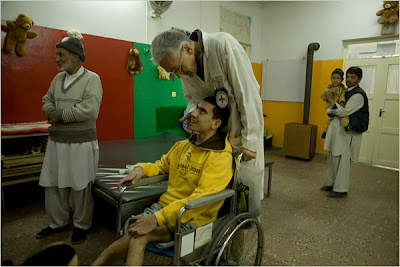
As we read of the unfolding massacre in Gaza, I thought it appropriate to excerpt the following from an opinion piece written by Tariq Ali in yesterday's The Guardian newspaper.
Here it is:
And Israeli citizens might ponder the following words from Shakespeare (in The Merchant of Venice), which I have slightly altered:
"I am a Palestinian. Hath not a Palestinian eyes? Hath not a Palestinian hands, organs, dimensions, senses, affections, passions? Fed with the same food, hurt with the same weapons, subject to the same diseases, healed by the same means, warmed and cooled by the same winter and summer, as a Jew is? If you prick us, do we not bleed? If you tickle us, do we not laugh? If you poison us do we not die? And if you wrong us, shall we not revenge? If we are like you in the rest, we will resemble you in that … the villainy you teach me, I will execute; and it shall go hard but I will better the instruction."
For those interested, here's the actual quotation from The Merchant of Venice:
I am a Jew. Hath not a Jew eyes? Hath not a Jew hands, organs, dimensions, senses, affections, passions; fed with the same food, hurt with the same weapons, subject to the same diseases, healed by the same means, warmed and cooled by the same winter and summer as a Christian is? If you prick us do we not bleed? If you tickle us do we not laugh? If you poison us do we not die? And if you wrong us shall we not revenge? If we are like you in the rest, we will resemble you in that. If a Jew wrong a Christian, what is his humility? Revenge. If a Christian wrong a Jew, what should his sufferance be by Christian example? Why, revenge. The villainy you teach me I will execute, and it shall go hard but I will better the instruction. (III.i.49–61)





















































